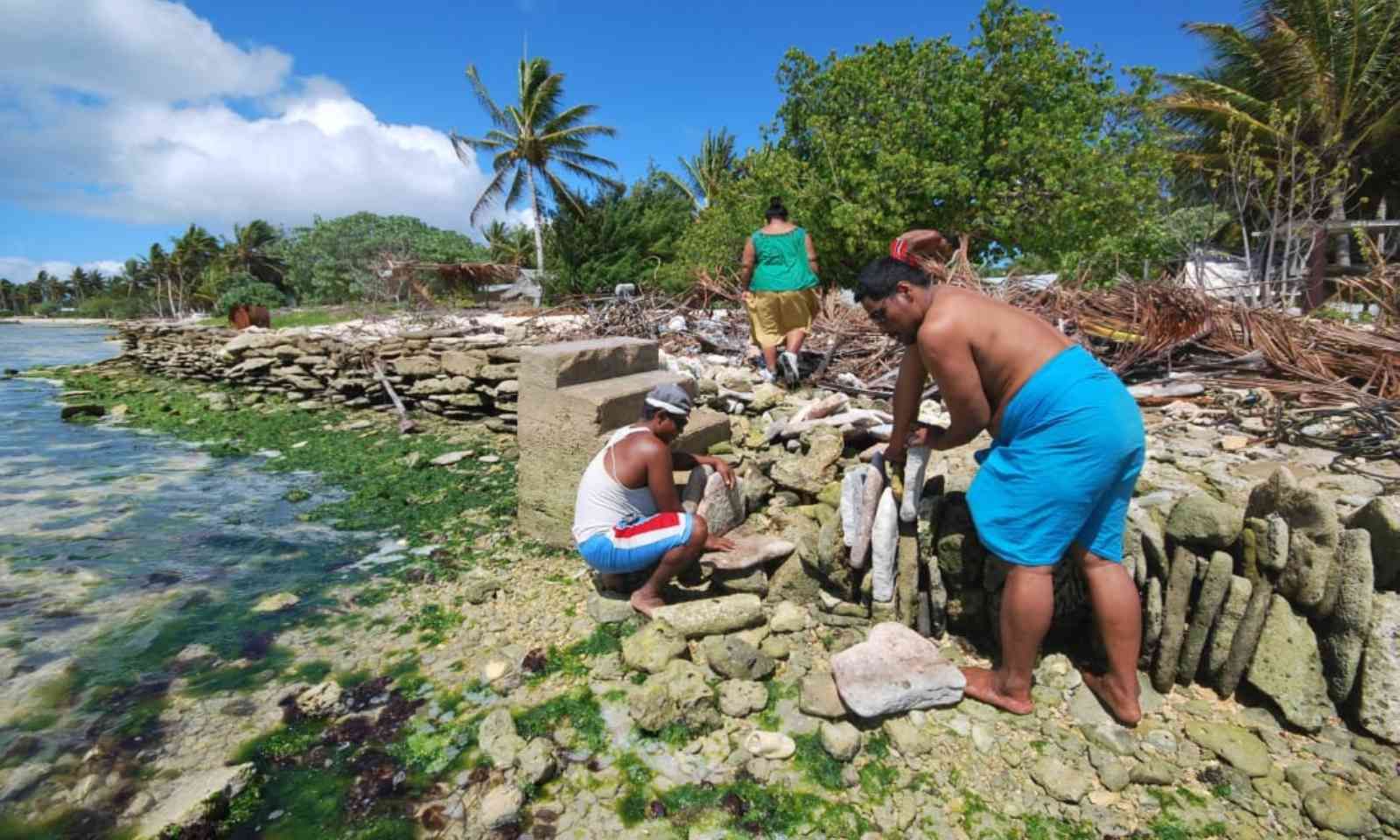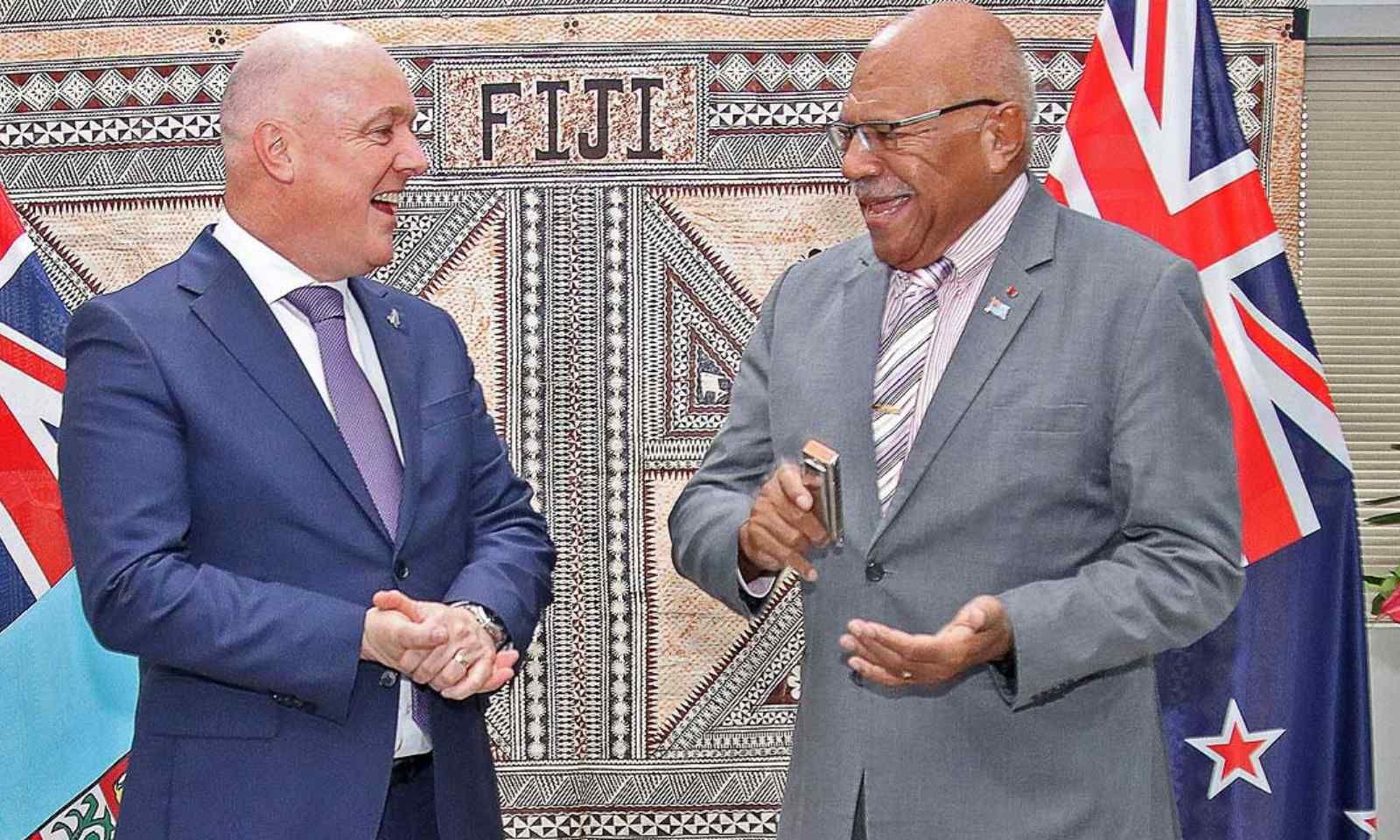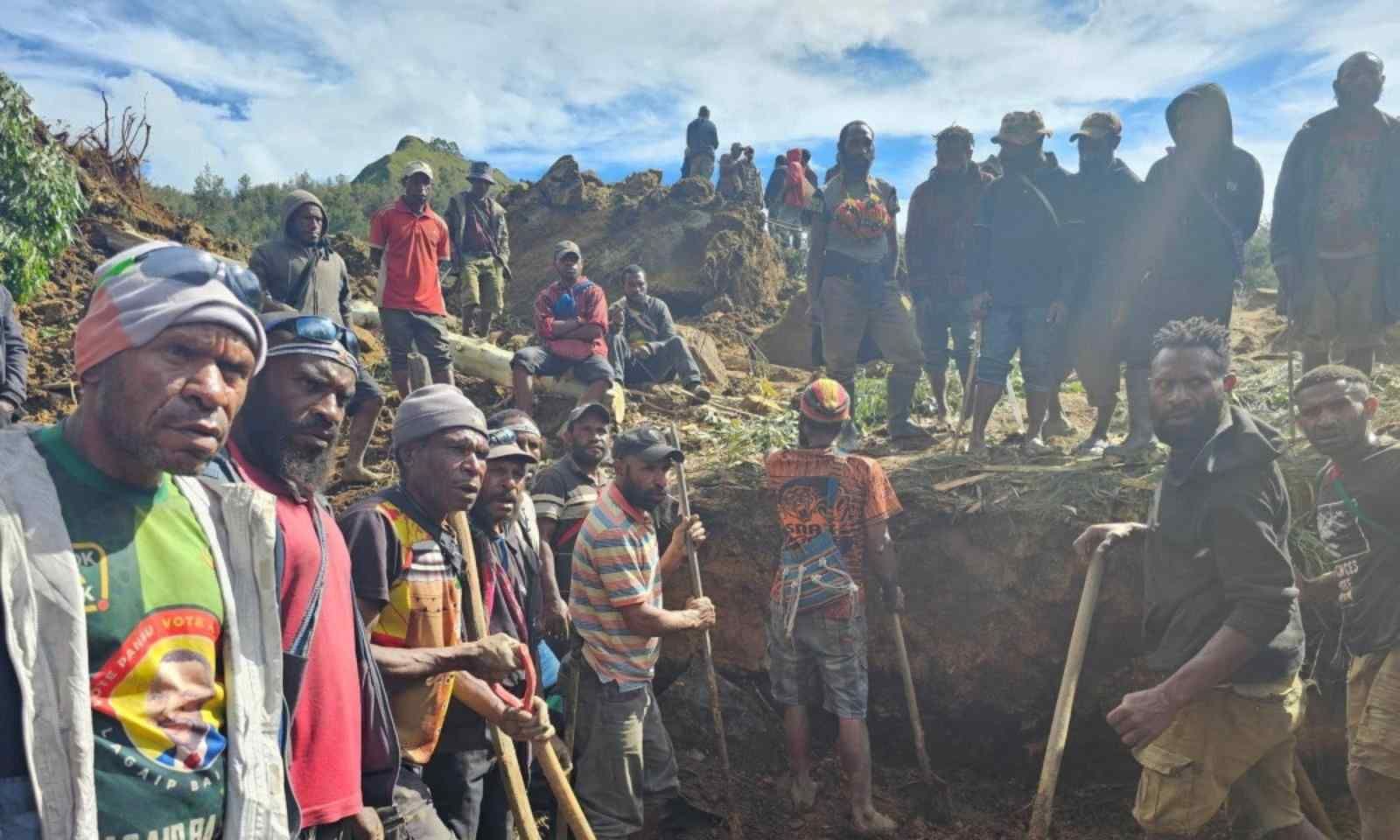

Climate change, not China, poses the biggest security threat to the Pacific.
Photo/supplied
Calls for visa-free travel amid climate crisis
New Zealand has a chance to reignite the Pacific voyage and save those impacted by rising sea levels, the experts say.


Pacific Bites: South Auckland weighs in on the top dishes of 2025

Fiji community mourns after Sydney stabbing leaves two people dead


Pacific leaders humbled by recognition in New Year 2026 Honours

Pacific Bites: South Auckland weighs in on the top dishes of 2025

Fiji community mourns after Sydney stabbing leaves two people dead

Voyaging has linked Pacific cultures and economies for thousands of years.
Despite this history and importance to Pasifika, their ability to travel has been limited by visa requirements compared with their neighbours New Zealand and Australia.
Pacific leaders warn there is no chance of an economically integrated region without the free movement of people amid the growing threat of climate change.
Sāmoa and the Solomon Islands are supporting Fiji’s call for visa-free travel of people within the Pacific.
Political scientist Dr Christina Laalaai-Tausa says Aotearoa can help those affected by rising sea levels, just as it fast-tracked refugees from Ukraine at the peak of the Russian war.
“It’s something that needs to be explored until such a time that it’s deemed necessary for people to move,” Laalaai-Tausa told Pacific Mornings’ William Terite.
“You’d be surprised at the amount of people in the region who do not want to move. But it’ll be great to see New Zealand have something in place to future-proof the Pacific region from future climate catastrophes.”
Citizens of New Zealand and Australia, the Pacific’s two largest countries, already enjoy virtually unlimited free movement between the two countries. However, Kiwis need a visa to enter Australia - it’s just one they pick up on arrival.
There are no Pacific island nations on Immigration New Zealand's visa-waiver list. But for Aotearoa’s realm countries such as Niue, Tokelau, and Cook Islands, the INZ said their people were NZ citizens, and free to live and work here.
Visa waivers for several Pacific Island countries were introduced in December 1986, which allowed people to visit New Zealand visa-free for up to three months. However, a surge in visitor numbers meant visa requirements for some of these nations were reimposed a year later.
The visitor visa waiver for Tuvalu, Kiribati, and Nauru nationals was suspended on 8 December 2023.
Then immigration minister Lianne Dalziel said the move provided a consistent visa policy for all Pacific countries and the change brought Tuvalu, Kiribati, and Nauru into line with this.
Pacific leaders have said that climate change, not China, posed the biggest security threat to the region.

Villagers living along the coast face the greatest impacts of climate change. Photo/supplied
Chinese Premier Li Qiang visited Aotearoa last week and announced New Zealand passport holders could now enjoy visa-free entry into China, in a move set to strengthen ties and enable more travel between both countries.
In 2017, the New Zealand humanitarian visa was designed to provide a pathway for people affected by severe rights abuses, conflicts, or natural disasters.
But it ended six months after it was created because no one used it, Laalaai-Tausa said, adding people did not want to leave their ancestral homes.
She said while Pacific islanders were calling for countries to reduce gas emissions, they also needed a pathway visa such as “having a refugee status as a last resort to addressing the climate crisis.
“Pacific people may choose to stay in dignity within their countries but that doesn’t mean New Zealand should be complacent.
“It’s a matter of human rights and a matter of human decency and New Zealand has entrenched social connections, cultural connections, historical connections to the region.
“I have faith in New Zealand not being a bystander in what is the region's existential threat (climate change).”
During his visit to Fiji earlier this month - his first to the Pacific as PM - Christopher Luxon announced his government would remove the need for transit visas for Fijians entering Aotearoa.

Christopher Luxon and Sitiveni Rabuka say New Zealand and Fiji remain committed to their Duavata Partnership. Photo/Fiji government
In a joint statement, Luxon and Fijian Prime Minister Sitiveni Rabuka said they were committed to refreshing their Duavata Partnership next year.
Luxon said the decision to allow Fijian nationals to enter New Zealand without the need for a transit visa was also a "tangible demonstration" of Aotearoa’s commitment to a key Pacific ally.
He said this would also have a positive economic impact on the region, “that Fijian nationals will be able to transit New Zealand with a New Zealand Electronic Travel Authority (NZeTA), similar to many other Pacific countries”.
Luxon said the changes were expected to be completed "in the coming months".
Fijians still need to apply for the appropriate visa to visit, study, or work in New Zealand.
Luxon said the government was aware of the concerns raised around the cost of visitor visas and had "taken that on board".
During his visit to Apia in February, Foreign Minister Winston Peters told Sāmoan Prime Minister Fiamē Naomi Mata'afa that visa-free travel between the two countries was “under consideration”.
Fiamē said she looked forward to having a "broader platform to discuss" the matter and hoped to expand travel options to other countries outside New Zealand and Australia.

Work continues to relocate Papua New Guinea villagers after a devastating landslide killed thousands in Enga Province on 27 May. Photo/supplied